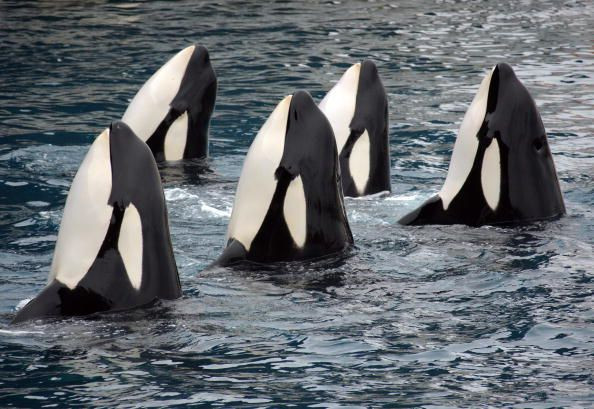SeaWorld To End Orca Breeding Program, Killer Whales At Parks Will Be ‘The Last Generation’

After controversy and protests over the conditions of killer whales at SeaWorld, the company announced Thursday that it will stop breeding orcas in captivity. The move comes nearly three years after SeaWorld came under pressure after the 2013 documentary “Blackfish” highlighted the conditions of animals at the park and raised questions over the animals and their work with trainers.
SeaWorld Entertainment said in the statement that the orcas currently at the parks will be "the last generation." The company also said that it would replace its popular theatrical shows featuring killer whales with "new, inspiring, natural orca encounters ... as part of its ongoing commitment to education, marine science research, and rescue of marine animals."
SeaWorld, which has 12 parks across the U.S., had already announced plans to end killer whale shows at its San Diego park following regulatory scrutiny in California.

The company has been under heavy pressure from animal rights activists, including People for the Ethical Treatment of Animals (PETA) and other watchdog groups, to end shows and breeding.
"PETA has campaigned hard, and now there is a payoff for future generations of orcas – but today is the day to stop breeding, not sometime later this year," PETA President Ingrid E. Newkirk said in a statement emailed to Mashable. "SeaWorld must open its tanks to the oceans to allow the orcas it now holds captive to have some semblance of a life outside these prison tanks."
SeaWorld CEO Joel Manby said in an op-ed in the Los Angeles Times that it would be too dangerous to release the whales into the wild as they will likely die. In fact, no orca or dolphin born under human care has ever survived release into the wild, he added.
Over the last few years SeaWorld’s attendance and stock price figures have been hit by a growing anti-captivity movement. But in its most recent earnings report, it said that total attendance was 22.47 million in 2015, an increase of 70,000 from 2014. However, the total revenues dropped to $1.37 billion in 2015 from $1.38 billion in 2014. Net income also fell to $49.1 million in 2015, from $49.9 million the previous year.
© Copyright IBTimes 2024. All rights reserved.





















